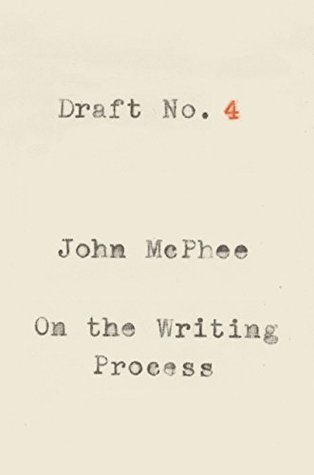More on this book
Community
Kindle Notes & Highlights
Writers like Mark Singer and Brock Brower have said that you know you’ve done enough peripheral interviewing when you meet yourself coming the other way.
I had assembled enough material to fill a silo, and now I had no idea what to do with it.
a New Yorker staff writer (a euphemistic term that means unsalaried freelance close to the magazine).
To lack confidence at the outset seems rational to me. It doesn’t matter that something you’ve done before worked out well. Your last piece is never going to write your next one for you.
A compelling structure in nonfiction can have an attracting effect analogous to a story line in fiction.”
Developing a structure is seldom that simple. Almost always there is considerable tension between chronology and theme, and chronology traditionally wins.
As a nonfiction writer, you could not change the facts of the chronology, but with verb tenses and other forms of clear guidance to the reader you were free to do a flashback if you thought one made sense in presenting the story.
Each of those structures, from the nineteen-sixties and nineteen-seventies, was worked out after copying with a typewriter all notes from notebooks and transcribing the contents of microcassettes.
The note-typing could take many weeks, but it collected everything in one legible place, and it ran all the raw material in some concentration through the mind.
It painted me into a corner, yes, but in doing so it freed me to write.
“I’d rather have Kedit be a good text editor than a bad word processor.”
“What I did was package in a useful way a number of ideas.
What counts is a finished piece, and how you get there is idiosyncratic.
“A Thousand Details Add Up to One Impression.” It’s actually a quote from Cary Grant. Its implication is that few (if any) details are individually essential, while the details collectively are absolutely essential.
Prompt and clear in reaction to manuscripts, he knew what he was publishing and was smarter than most writers, certainly this one.
young writers were “taking longer to find out what kinds of writers they are,”
I became completely absorbed with long nonfiction. The degree of difficulty in all forms of writing is high, and this was no picnic, but at least it felt right for me,
Fiction, in my view, is much harder to do than fact, because the fiction writer moves forward by trial and error, while the fact writer is working with a certain body of collected material, and can set up a structure beforehand.
He said, “It takes as long as it takes.”
No one will ever write in just the way that you do, or in just the way that anyone else does. Because of this fact, there is no real competition between writers. What appears to be competition is actually nothing more than jealousy and gossip. Writing is a matter strictly of developing oneself. You compete only with yourself. You develop yourself by writing.
Writers come in two principal categories—those who are overtly insecure and those who are covertly insecure—and they can all use help.
I’d much rather watch people do what they do than talk to them across a desk.
In the way that a documentary-film crew can, by its very presence, alter a scene it is filming, a voice recorder can affect the milieu of an interview.
From the start, make clear what you are doing and who will publish what you write. Display your notebook as if it were a fishing license.
He spoke of people who “perspire audibly.”
He is a bad listener in general conversation and a good one when acting.
You will never land smoothly on borrowed vividness. If you say someone looks like Tom Cruise—and you let it go at that—you are asking Tom Cruise to do your writing for you. Your description will fail when your reader doesn’t know who Tom Cruise is.
he was wondering if all of us are losing what he felicitously called our “collective vocabulary.” He asked, “Are common points of reference dwindling? Has the personal niche supplanted the public square?”
Problems become less threatening, more interesting.
The difference between a common writer and an improviser on a stage (or any performing artist) is that writing can be revised.
Actually, the essence of the process is revision.
If I enjoy anything in this process it is Draft No. 4.
You draw a box not only around any word that does not seem quite right but also around words that fulfill their assignment but seem to present an opportunity.
With dictionaries, I spend a great deal more time looking up words I know than words I have never heard of—at least ninety-nine to one.
If your journey is long enough in wild country, you change, albeit temporarily, while you are there.


